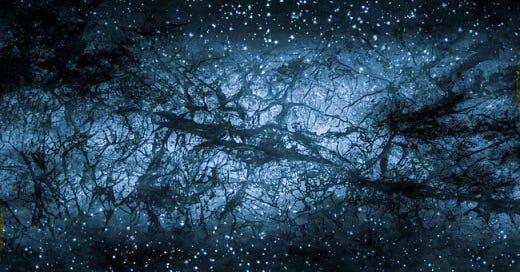Lately I’ve been inspired most notably by Beauty.
It’s difficult to define what Beauty is, but we can look to classical definitions to get a sense.
In the Old Way, it was a sense of proportionality. We see this in architecture, particularly in Cathedrals, where a grand symmetry guides the principle of the building. But we also see it in ancient statues, where faces and bodies were chiseled to represent an ideal perfection.
In the New World which I inhabit, I like to think about it more in terms of Coleridge’s terms for poetry: “the reconciliation of discordant or opposite qualities.” The way it manifests for me is the sudden strike of recognition when I behold something (generally in a person) which jogs me out of my set of narcissistic assumptions and into a participatory sphere where I am asked to Be Better and think more Charitably.
As Marilynne Robinson says, “Beauty Disciplines.”
In her essay “Grace and Beauty,” she writes about it in this way (I’m leaving her lowercase):
“I am treating beauty here as an active principle. I use elegance as a virtual synonym for it, pleased that elegance has status by association with good thought, though I try not to exploit this. I do not mean to say that one thing or another rises to the standard of beauty, rather I propose that beauty manifests itself in one thing or another, even asserts itself when accident permits. In saying this I intend to suggest a kind of force active in reality, perhaps very pervasively, that we have no instruments to measure or record except our minds and senses. Consider the ancient, perhaps universal association of beauty with power. The greater the god, the more splendid the temple, as if like were meant to conjure like.”
When I was 20 or so I wrote a song called “Revolutions Sure” which had the lyrics “Beauty bring me, Beauty break me, Beauty take me away.” I mention it merely because it comes into memory as I write this.
Robinson’s essay came from the perspective of a novelist, and she admits as much. In the piece, she is concerned with how characters emerge, which asks her to consider something of the nature of the mind. As she considers this emergence, she feels compelled to revel at just how unknowable most of the universe is, including the essences of many of the terms we use to describe it and our place within it.
“The fact is that I have begun to feel both intrigued and comforted by the thought of everything we do not know, which is almost everything. The 95 percent of the mass of the universe that is dark matter holds the galaxies together, so they say. It is like a parable, this aloof and unknowable power sustaining us, the patron, so to speak, of the spangled heavens, which are so grand to our sight, and baubles when the universe is thought of whole. Whatever it is, it is utterly unlike the matter that is familiar to us, so I have read. How excellent it is that anything could be so unforeseen. And just as excellent, and fully as remarkable, that humankind has managed to catch a glimpse of it.”
When you’re in recovery programs, you’re sometimes asked to think of things you greatly value in the world, that you might have a motivation for choosing to abstain from your “substance of choice.” SMART Recovery clumsily calls this the “Vitally Absorbing Creative Interest.” This is the thing that, no matter what, is always Good, and always something you value more than you value whatever illusory titillation your substance brings you.
As abstract as it is, and as hard to define, the last time I was in the hospital asked to come up with such an idea, I wrote it simply, and in a single word:
Beauty.
May many blessings befall you on this beautiful day. Aesthetically, Aaron




